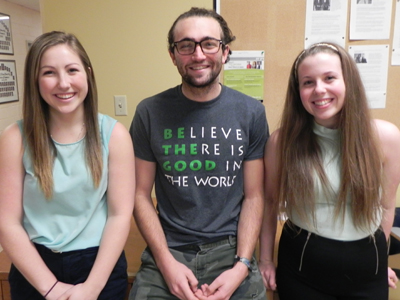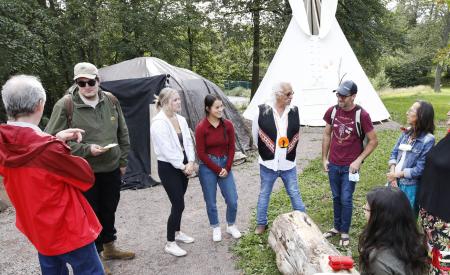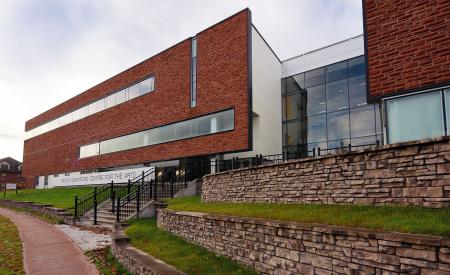Commerce students apply organizational behaviour theory to workplace
 How individuals act in the workplace can mean the difference between success and failure in achieving an organization’s goals. However, changing the way people behave is not always easy. A team of Commerce students did just that, developing a plan that addressed a problem in the workplace of one team member. Their plan worked even better than they had predicted.
How individuals act in the workplace can mean the difference between success and failure in achieving an organization’s goals. However, changing the way people behave is not always easy. A team of Commerce students did just that, developing a plan that addressed a problem in the workplace of one team member. Their plan worked even better than they had predicted.
It started as a project in Commerce professor Dr. Jane Mullen’s organizational behaviour class. The teams were to discuss different work problems they had experienced and, using the theories they had learned in class, find a system to address one of these issues. Kathryn Chamberlain, Ben Foster, Laura Pearson, and Marcus Rogers came up with a motivation system for Sully’s Ice Cream Parlour where Pearson worked.
“We chose Laura’s work because she was going into a managerial role in the summer,” says Chamberlain.
Pearson’s boss was an entrepreneur himself in university and was very supportive of the idea. The problem the team addressed was the tendency for workers at Sully’s to avoid certain tasks.
“We were trying to find a way to motivate people to actually want to do these tasks and we thought of a reward-based motivation system,” says Pearson. “We looked at a number of theories of motivation, read through different academic papers, and tried to apply what the researchers were saying to our situation,” explains Chamberlain.
Once on the job, Pearson had to be flexible and modified the plan a little. But not only did the system work, but in ways that the team did not predict.
“I tried to keep it team-based and one reward was that they went to the beach. What was interesting is that people became more comfortable with each other and that is good because then you communicate better. People who were shy were not afraid to speak up and ask questions about how to do things. We all communicated and interacted a lot better, “ says Pearson. “This was not something that we put in our report and it was probably the best thing that came out of it.”
The team felt a certain pride in the project and the results.
“My favourite part of the project was presenting it in class. At that point it became real because it was actually going to be a solution and help a business,” says Rogers. “It was also cool to see the link between the theory and the practical application. I am trying to relish all the experiential learning I can while I am at Mount Allison.”
Dr. Mullen says, “The team did a great job on all stages of the project and the result is an effective program that is supported by empirical data, and is also practical for Sully’s.”
This organizational behaviour class looks at individuals in an organization, their needs, motivation, personality and how job design, work attitudes, performance appraisal, and stress management can improve the workplace.
PHOTO CAPTION (L-R): Kathryn Chamberlain,Marcus Rogers, and Laura Pearson. Missing from photo is Ben Foster.




